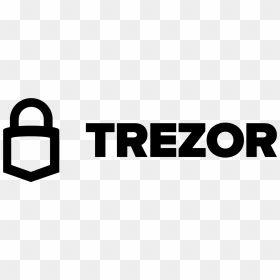So I was thinking about how we stash our crypto these days. Seriously, it feels like every week there’s a new wallet or some flashy app promising “unbreakable security.” But here’s the thing: even with all these options, I keep circling back to open-source hardware wallets. Something about the transparency just clicks with me. Maybe it’s that gut feeling—if you can’t peek under the hood, how do you really trust it?
At first glance, hardware wallets seem like just fancy USB drives, but they’re way more than that. They physically isolate your private keys from the internet, which is huge because it cuts off hackers from the get-go. But not all hardware wallets are created equal. Some are closed source, meaning you have to take their word for it that everything’s secure. That’s a hard pass for me. I want my wallet’s code and firmware out in the open, where experts and hobbyists alike can poke around and verify it’s legit.
Whoa! Have you ever tried explaining to a friend why open source matters in crypto security? It’s like convincing them their bank vault should have a transparent wall. Odd, right? But when you think about it, that’s kind of the point—openness breeds trust. Plus, if there’s a vulnerability, the community can jump on it fast, patch it, and keep everyone safer. Closed systems? You’re stuck waiting and hoping the company’s on the ball.
But okay, here’s where it gets tricky. Not everyone wants to dive into code or audit firmware. Honestly, I’m not a cryptographer myself, so my trust partly comes from the reputation of the wallet’s developers and the community backing it. Initially, I thought just owning a hardware wallet was enough, but then I realized the software side is just as critical. A glitch in the firmware or a sneaky backdoor could undermine everything.
On one hand, I get why some people might prefer user-friendliness over transparency—sometimes the tech can be a bit intimidating. Though actually, some open-source wallets have gotten surprisingly polished. Take the trezor wallet, for example. It’s open source, battle-tested, and still manages to feel accessible for less tech-savvy users. I’m biased, but it strikes a good balance between hardcore security and usability.

Okay, so check this out—hardware wallets don’t just protect against hackers remotely stealing your keys. They also shield you from a lot of human error. Typing your seed phrase into a random app? Big no-no. But with a hardware wallet, your sensitive info never leaves the device. I remember once I almost plugged into a dodgy USB port at a coffee shop. The thought made me super uneasy, and that’s when I really appreciated having a device that’s impervious to that kind of attack.
That said, open source doesn’t automatically mean perfect. Sometimes, bugs linger longer than they should because the community needs time to catch them. And some wallets might be open source but still complicated to verify unless you’re an expert. The devil’s in the details. Still, I’d rather have a somewhat imperfect open system than a black box I can’t question. At least with open-source, you get visibility into what could be improved.
Something felt off about the hype around “new-gen” wallets that claim to do everything but don’t show their code. To me, that’s a red flag. Security should be a conversation, not a secret. The more eyes on the code, the better. It’s like quality control in manufacturing—if only one person inspects the product, issues slip through. But if a whole community’s involved, you get many perspectives and catch more problems early.
Here’s a little personal anecdote: I once helped a friend set up their first hardware wallet. We picked the trezor wallet because of its open-source credentials and solid track record. Watching them go from skeptical to confident in managing their crypto offline was pretty rewarding. It’s not just about tech; it’s about empowering people to hold their own keys without fear.
Still, I won’t pretend open-source hardware wallets are flawless. The supply chain can be a vulnerability—if someone tampers with the device before you get it, all bets are off. That’s why buying directly from trusted sources matters. Also, the physical device can get lost or damaged. So backups and recovery plans are super very very important, but that’s a whole other rabbit hole.
In the end, security is a layered thing. Open source hardware wallets like Trezor aren’t a silver bullet, but they’re a cornerstone. They provide a foundation where you can actually verify what’s under the hood, and that’s priceless. I’m not 100% sure if everyone needs one, but if you’re serious about crypto security, it’s hard to beat having your keys offline and open for inspection.
Anyway, I’m curious—do you trust closed-source wallets more because they’re “easier,” or is transparency a dealbreaker? For me, it’s no contest. Open source wins hands down, even if it means a bit more effort upfront. Because at the end of the day, when you’re dealing with digital wealth, trust isn’t just nice to have—it’s everything.